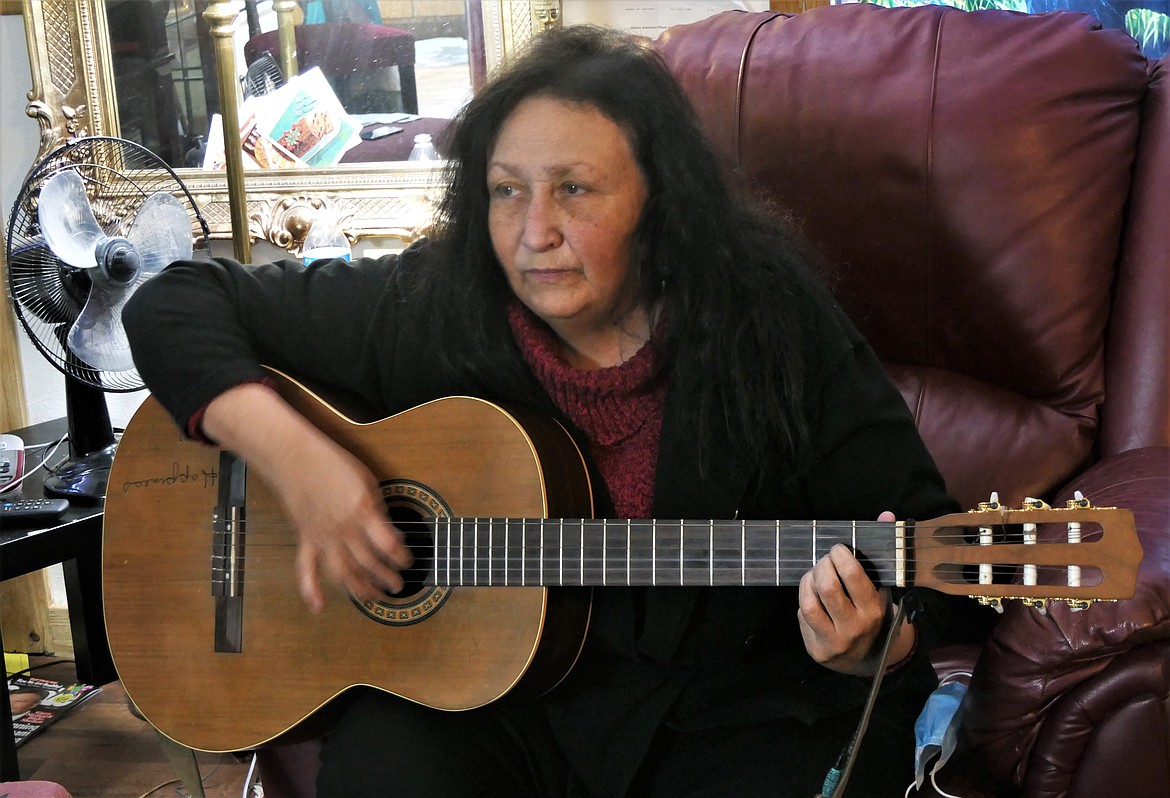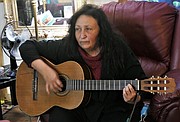Hip-hop artist Shadow Devereaux receives national music award
KRISTI NIEMEYER | Hagadone News Network | UPDATED 3 years, 1 month AGO
Kristi Niemeyer is editor of the Lake County Leader. She learned her newspaper licks at the Mission Valley News and honed them at the helm of the Ronan Pioneer and, eventually, as co-editor of the Leader until 1993. She later launched and published Lively Times, a statewide arts and entertainment monthly (she still publishes the digital version), and produced and edited State of the Arts for the Montana Arts Council and Heart to Heart for St. Luke Community Healthcare. Reach her at [email protected] or 406-883-4343. | January 4, 2023 11:00 PM
Shadow Devereaux, a Salish and Blackfeet singer/songwriter and hip-hop artist who grew up on the Flathead Reservation, won a 2022 Native American Music Award for Best Narrative Video. The national awards were presented in November during a ceremony in Niagra Falls, N.Y.
"It feels surreal," he says. "Deep down any award has been a goal for me but you get lost in the day-to-day grind and forget about your goals and accomplishments. So when things like this come along it reminds you that you're headed in the right direction."
Devereaux took top honors for his original song and video “Protect Your People,” co-directed and filmed by Colton Olmstead. The video, which shows Devereaux rapping at sites across the Flathead Reservation, is spliced with scenes of his cousin, Buck Morigeau, dancing in full regalia, speaking in Salish and playing a Native flute, creating a juxtaposition of contemporary and traditional tribal life.
Salish elder Gen Huitt was also nominated for Best Country Music Video for “Missing,” a song she co-wrote with Linda Mckenzie, who performs on the video and submitted it for the awards.
Devereaux, also known as Foreshadow, crafted “Protect Your People” during the pandemic after Michelle Mitchell, head of the Tribal Education Department, asked him to write a song that promoted COVID awareness.
“I just took it and ran from there,” he says. While the song addresses the virus – “From Evaro to Elmo, I know you can feel this, Flathead Nation we can be the COVID killswitch” – it also honors elders.
“When you listen, it has a lot of good cultural values,” says Devereaux. “I took what I learned as a kid, as a Native American, and just put that into lyrics and it pertained to COVID too, since they kind of go hand in hand.”
Devereaux grew up between Dixon, Charlo and Arlee and began making music in high school. “I always could write and I like poetry so rapping came a little bit naturally.”
In 2010, he began to get serious about writing and recording his own music. In addition to UM-Western and studying business at the University of Montana, he took an online course in recording from the Berklee College of Music.
Devereaux and Olmstead are now partners in a multi-media studio in Missoula called Nu Wav, which offers videography, recording, mixing, mastering and engineering, as well as photography, and graphic and web design. Evan Ferris and Erik Langan also contribute engineering and design skills.
He and his family moved from the reservation to Missoula during the waning months of the pandemic. With three small children, “I have way less time than I used to, but they’re also probably one of my biggest inspirations to write,” he says.
Devereaux is working on his first solo album and is already planning to submit music for the 2023 NAMA. “Next year if I get nominated, I’ll definitely go,” he says.
“It’s about all of us, all of us won,” says Huitt of Devereaux’s song and his award. “They turned the rap a whole 360 degrees.”
Huitt, who grew up in St. Ignatius, has had a long career in music, dating back to the 1970s when she opened for national stars like John Lee Hooker, B.B. King and Leo Kottke. She’s been a songwriter, performer and storyteller for decades, launching a nonprofit organization in Minnesota called the Native American Music Association in 1997, with a goal of promoting indigenous music.
Her song, “Missing,” was co-written in 2021 with Nashville singer/songwriter Linda Mckenzie, who was living in Ronan at the time.
Huitt says Mckenzie approached her about writing a song together and “Missing” emerged. The lyrics were fueled by the trauma of a recent murder, that of 55-year-old St. Ignatius woman Darlene Billie, whose body was found in rural North Dakota in 2018. It also reflects generational trauma, including the death of Huitt’s aunt, Genevieve Margaret Huitt, whose charred body was found in a burned car more than 60 years ago.
“Grandmother walks, grandmother prays, grandmother cries a tear in the grave for her Salish daughter, half Kootenai in the land where the sun rises high,” goes the song. “And the Bitterroot blooms as the elder cries … A tear for the children who should not die. She’s a mother, a sister, someone’s wife …”
Mckenzie went on to record “Missing,” which includes Huitt chanting in the background; Kenny Lee Lewis of the Steve Miller Band contributed guitar, percussion, bass and flute. She eventually submitted it, and an accompanying video, to NAMA.
During a December celebration honoring the two Salish musicians, Huitt said Devereaux’s accomplishment acknowledges a larger truth:
“As I am completing my circle of life, I am asking all the young people to continue the good work our ancestors and my generation have continued through the years – to share our culture.”
“Protect the people, protect the human beings, protect the children,” she urged.
ARTICLES BY KRISTI NIEMEYER
Candidate filing opens Monday for county, state and federal offices
With candidate flyers already appearing on doorknobs and in mailboxes across Lake County, it’s apparent that campaign season is already ramping up in Montana.

Flathead Lakers, CSKT sign on to lawsuit challenging rollback of water quality standards
The Flathead Lakers, Confederated Salish and Kootenai Tribes and Upper Missouri Waterkeeper filed a lawsuit in federal court Jan. 26, challenging the Environmental Protection Agency’s approval of new state water quality standards.

Election judges see democracy in action
Do you value democracy, pay close attention to details, and have the physical and mental stamina to work 18-hour days? Then serving as an election judge might be the ideal parttime job, especially for those who aspire to work twice every other year.



